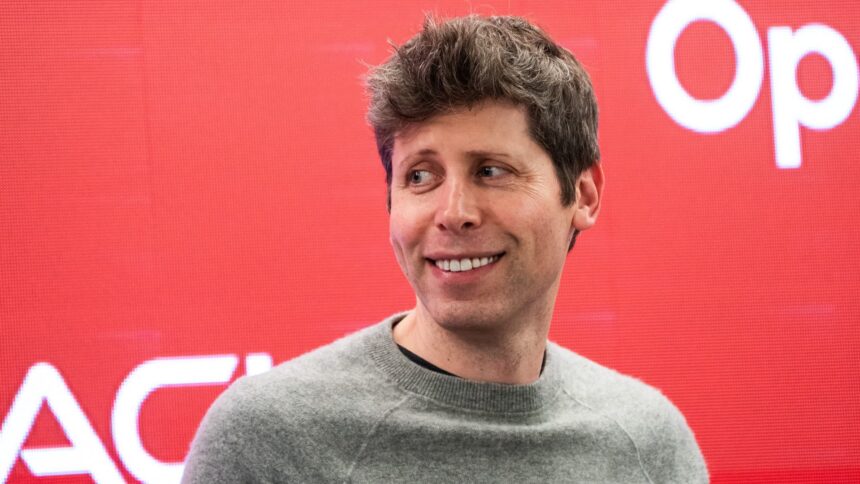In a media tour at the Stargate AI data center in Abilene, Texas, Sam Altman, CEO of OpenAI, unveiled an ambitious plan that promises to reshape the very fabric of the internet. On the arid grounds of what will soon be one of the largest data center complexes ever constructed, Altman announced a monumental 17-gigawatt infrastructure project in collaboration with industry giants Oracle, Nvidia, and SoftBank. This unprecedented expansion is likened to developing the energy capacity of 17 nuclear plants or approximately nine Hoover Dams, requiring enough electricity to power over 13 million American households.
The scale of this initiative is staggering, with an estimated investment of around $850 billion, an amount that nearly accounts for half of the global AI infrastructure growth projected by HSBC at $2 trillion. Altman emphasized the necessity of this expansion to meet explosive demand for AI technologies, pointing out a tenfold increase in ChatGPT usage over the last year and a half.
“People are worried. I totally get that. I think that’s a very natural thing,” he acknowledged during an interview, asserting that the surge in AI demand drives this rapid development. According to Altman, the infrastructure is not just about more power; it’s essential to deliver AI capabilities effectively. “Unlike previous technological revolutions or previous versions of the internet, there’s so much infrastructure that’s required, and this is a small sample of it,” he stated.
He also highlighted that the primary bottleneck for AI advancement is not financial resources or microchips, but electricity itself. In a bid to secure sustainable energy sources, Altman has previously invested in nuclear ventures, including a $500 million funding round for Helion Energy, a fusion firm.
Despite critics warning of a potential bubble as major firms like Nvidia, Oracle, and Microsoft amass significant market value through collaborations with OpenAI, Altman remained confident in the necessity of this ecosystem. He acknowledged that financial cycles often accompany technological booms, suggesting that while some may face losses from overinvestment, the long-term societal value of this technology will be enormous.
OpenAI’s partners are positioning themselves for substantial gains in this rapidly evolving landscape. Oracle is restructuring its leadership to capitalize on the anticipated demand, while Nvidia is investing not just in chips, but in equity to support the initiative. Altman also mentioned that operational costs for the new facilities will be covered by OpenAI once they come online.
OpenAI CFO Sarah Friar clarified the partnership dynamics at play, revealing that Nvidia’s contributions are pivotal to launching the project, while the leasing agreement with Oracle adds another layer of collaboration. The facilities being established are expected to address a massive compute crunch, underscoring the urgency of scaling infrastructure to keep pace with rising computational needs.
As for the future, Altman hinted at developments with Microsoft, affirming their continued significance as a key supplier while also considering the broader implications of an eventual public offering for OpenAI. He expressed mixed feelings regarding an IPO, acknowledging that it might introduce pressure to meet short-term financial expectations at the cost of long-term innovation flexibility.
Adding another dimension to OpenAI’s expansion, Altman mentioned the recent acquisition of Jony Ive’s design startup, which signals plans for groundbreaking hardware that could transform user interaction with technology. While he cautioned that it may take time to bring products to market, the potential described by Altman is intriguing, suggesting an evolution in how computers might function in the future.
Overall, the sweeping infrastructure developments in places like Abilene and beyond illustrate OpenAI’s commitment to meeting soaring AI demands. The narrative is not merely about capital but encompasses a vision that seeks to create a transformative impact on technology and society as a whole.







